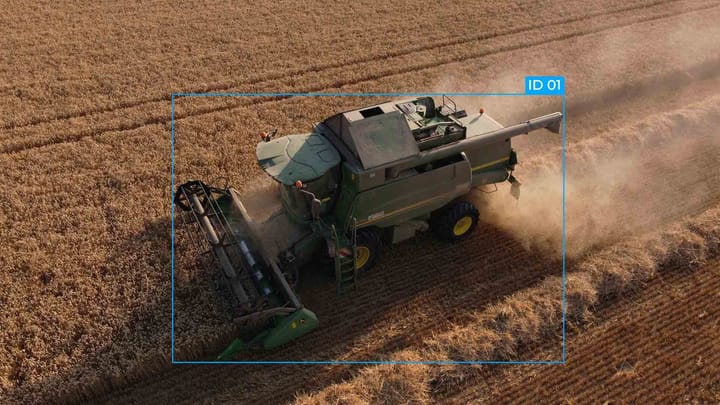AI Data Annotation for Autonomous Vehicles: The Future of Safe and Efficient Transportation

Autonomous vehicles revolutionize how people travel. They offer the potential for safer, more efficient, and more convenient transportation. These vehicles use artificial intelligence (AI) and machine learning algorithms to navigate roads.
The amount of training data necessary is enormous. AI-powered data annotation is the solution for processing this data. But one challenge is facing the development of autonomous vehicles in particular.
What is AI Data Annotation for Autonomous Vehicles?
AI data annotation refers to labeling and categorizing data to train systems. It provides a clear understanding of the data and ensures that it is accurate and relevant.
The data for autonomous vehicles includes images, videos, and sensor data. Examples include cameras and LiDAR, which offer a 360-degree view of the environment. You must annotate the data with consistency. Examples include the location of objects on the road, the type of object, and the direction it is moving. This information then trains the algorithms.
You need various tools and techniques to provide information for autonomous systems' operation. Someone must annotate these data sets with information about objects and events. Examples include traffic signals, pedestrians, and other vehicles.
Why is AI Data Annotation Critical for Developing Autonomous Vehicles?
AI data annotation is critical for several reasons. Autonomous systems need vast amounts of data to train algorithms. AI data annotation provides a way to ensure the quality of this data.
Also, autonomous systems may struggle to make proper decisions. They can behave without accurate and relevant data. The resulting hazards could lead to safety risks.
It streamlines the data labeling process. Also, it ensures that the data is relevant and accurate. Finally, it can reduce the time and cost of developing autonomous vehicles.
The Importance of High-Quality AI Data Annotation
High-quality AI data annotation is critical for autonomous vehicles' safe and efficient operation. Poor data can lead to incorrect decisions. These can affect the safety of passengers and other road users.
AI algorithms may not recognize people. It may make dangerous decisions, such as driving into them. For example, suppose a pedestrian annotation is inaccurate in an image.
Moreover, the sheer amount of data generated by autonomous vehicles is massive. As a result, manual annotation is time-consuming and labor-intensive. The need for accuracy and efficiency has led to AI-powered data annotation tools. These can annotate data sets, reducing the time and effort required. They also improve the accuracy of the annotations.
The Benefits of AI-Powered Data Annotation for Autonomous Vehicles
Some benefits of leveraging AI-powered data annotation for autonomous vehicles include the following:
- Improved safety – Ensure that the algorithms are reliable and trustworthy. It helps to reduce the risk of accidents and other dangerous situations.
- Increased efficiency – Data annotation makes developing autonomous vehicles faster and more efficient. You can train and confirm the algorithms.
- Enhanced performance – Using high-quality, annotated data helps improve the performance of autonomous vehicles. It makes them more effective and capable in real-world driving scenarios.
- Better accuracy – They reduce the risk of errors and improve accuracy.
- Scalability – Scale operations and develop products faster.
One of the primary benefits of AI data annotation is its ability to improve systems accuracy. AI data annotation ensures that autonomous vehicles identify and respond to road obstacles. As a result, you enhance the safety and reliability of autonomous systems. They are also more likely to perform well in real-world scenarios.
Challenges with AI Data Annotation for Autonomous Vehicles
Despite the many benefits of AI data annotation, there are several challenges, including:
- Data privacy and security – Autonomous vehicles generate data, including sensitive personal information. You must protect it to ensure data privacy and security.
- Data diversity – Autonomous vehicles operate in many urban, suburban, and rural environments. It poses challenges for data annotation due to the variety of objects and events.
- Annotation consistency – Consistency is critical to ensure AI algorithms make the right decisions. Inconsistent annotations can lead to incorrect conclusions and reduced accuracy.
- Annotation cost – The cost of annotating large data sets can be high. It's essential to find ways to reduce costs while maintaining quality.
While self-driving vehicles serve many benefits, there are also several challenges. One challenge is the need for large amounts of high-quality data. It can be time-consuming and expensive to get.
Additionally, data annotation requires specialized expertise, which can be challenging to find. Finally, the process of AI data annotation can be complex and time-consuming. Therefore, it requires significant resources and specialized tools.
Final Thoughts
For autonomous vehicles, focusing on high-quality data and advanced AI tools is crucial. They ensure these systems are safe and efficient to operate. Despite challenges, the benefits of AI-powered data annotation far outweigh the costs. It's an essential part of developing autonomous vehicles.
Keymakr's AI-powered data annotation tool offers accurate and efficient data labeling. Say goodbye to time-consuming manual annotation. Improve safety, enhance performance, and increase efficiency. Join the future of safe and efficient transportation now. Start using Keymakr's AI-powered data annotation tool.



Comments ()